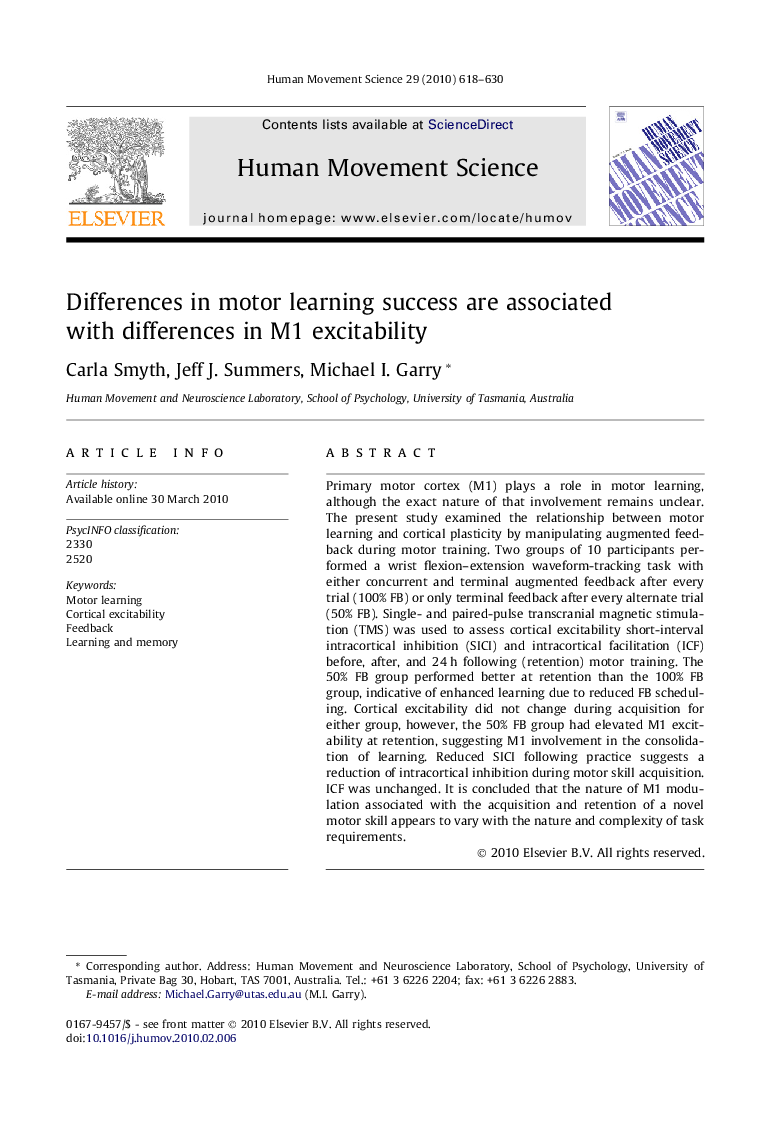| کد مقاله | کد نشریه | سال انتشار | مقاله انگلیسی | نسخه تمام متن |
|---|---|---|---|---|
| 928703 | 922384 | 2010 | 13 صفحه PDF | دانلود رایگان |

Primary motor cortex (M1) plays a role in motor learning, although the exact nature of that involvement remains unclear. The present study examined the relationship between motor learning and cortical plasticity by manipulating augmented feedback during motor training. Two groups of 10 participants performed a wrist flexion–extension waveform-tracking task with either concurrent and terminal augmented feedback after every trial (100% FB) or only terminal feedback after every alternate trial (50% FB). Single- and paired-pulse transcranial magnetic stimulation (TMS) was used to assess cortical excitability short-interval intracortical inhibition (SICI) and intracortical facilitation (ICF) before, after, and 24 h following (retention) motor training. The 50% FB group performed better at retention than the 100% FB group, indicative of enhanced learning due to reduced FB scheduling. Cortical excitability did not change during acquisition for either group, however, the 50% FB group had elevated M1 excitability at retention, suggesting M1 involvement in the consolidation of learning. Reduced SICI following practice suggests a reduction of intracortical inhibition during motor skill acquisition. ICF was unchanged. It is concluded that the nature of M1 modulation associated with the acquisition and retention of a novel motor skill appears to vary with the nature and complexity of task requirements.
Journal: Human Movement Science - Volume 29, Issue 5, October 2010, Pages 618–630